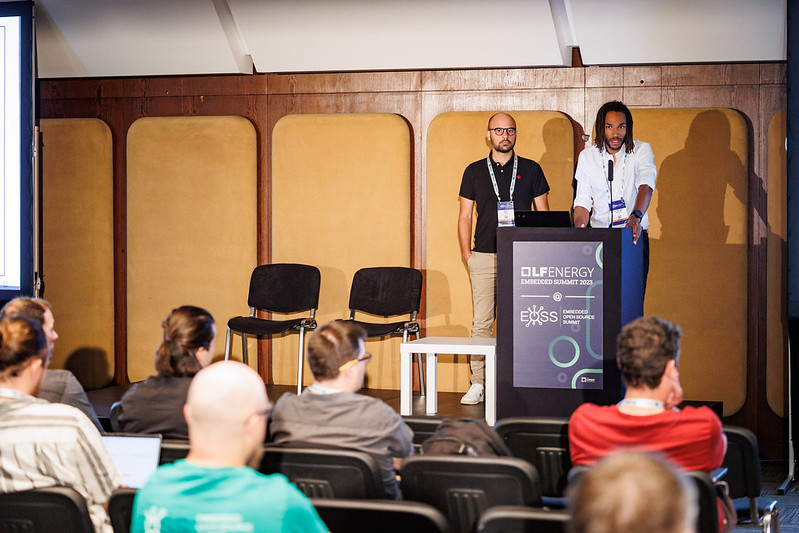LF Energy Embedded Summit 2023 Recap: SEAPATH: Advancing the Energy Sector with an Industrial-Grade Linux Platform, With Aurélien Watare, RTE & Eloi Bail, Savoir-Faire Linux
In the fast-evolving landscape of renewable energy integration, critical real-time applications play a pivotal role in ensuring a stable power grid. At LF Energy Embedded Summit 2023, Aurélien Watare from RTE and Eloi Bail from Savoir-Faire Linux presented SEAPATH, an innovative project that harnesses the power of an industrial-grade Linux platform to facilitate the integration of renewable energy sources into the energy sector (video follows below). In this blog post, we will delve into the key takeaways from their presentation.
The SEAPATH Project and Its Purpose
SEAPATH is an open-source project aimed at developing a reliable and robust platform for integrating renewable energy sources into power grids. The project focuses on ensuring the seamless operation of critical applications that monitor and manage energy generation and distribution in the energy sector.
Yocto and Debian Linux Distributions
SEAPATH involves two main Linux distributions, Yocto and Debian. Yocto is preferred for its customizability and performance, while Debian offers ease of maintenance and comes with pre-compiled packages. Both distributions serve as the foundation for SEAPATH’s virtualization approach.
High Availability and Failover with Open-Source Technologies
To ensure high availability and failover capabilities within the virtualized environment, SEAPATH relies on open source technologies such as Chorusync, Pacemaker, and Ceph. These technologies enable seamless data synchronization and resource management across different virtual machines, making the platform robust and fault-tolerant.
Continuous Integration (CI) for Rigorous Testing
SEAPATH employs a CI pipeline to continuously test the platform and its applications. Pull requests trigger the redeployment and reconfiguration of the Linux distribution on a real hardware cluster. Various tests, including security, high availability, and network performance, are conducted to ensure the platform’s stability and reliability.
Cybersecurity Compliance and Critical Application Testing
Given the critical nature of the applications running on the platform, cybersecurity is of utmost importance. SEAPATH addresses cybersecurity hardening during the build time for Yocto and with Ansible on the runtime for Debian. The project also collaborates with national cyber security offices to meet global regulatory requirements.
By leveraging industrial-grade Linux platforms, the integration of renewable energy sources becomes more efficient and reliable. Through rigorous testing and cyber security compliance, SEAPATH aims to provide a future-proof solution that can transform the energy industry.
